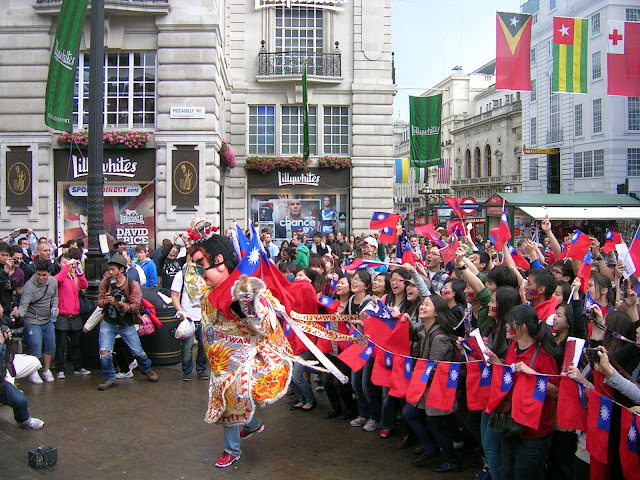Oslo is the city that I had no chances to visit when I was based in Sweden from 2010-2012. Actually at the time I didn't have the feeling that I must go there. I suppose that one of the reasons was that a friend of mine told me that Oslo was the most boring capital in the world. The high price also served as the straw that blocked my way to this city.
After I came back to Taiwan, I read a book about one guy's life in Norway. It was well written and I really enjoyed the stories and words. Most important of all, the author made this book stand out by presenting deeper insights on what he had observed and learned from Norwegian society and by depicting the "bad sides" of Nordic country that would be only echoed by the people who had Scandinavian experiences.
I was so thrilled by this book. So when I decided to go back to Europe to see all my friends and and to talk to the professors last year, Oslo was on my must-see list.
And I did go visit this city last November. I stayed with a Belgium host who was studying at Oslo University. We went for a walk in the forest and ascended to the top of the hill next to his dorm, where one could get a spectacular view of Oslo fjord. This is the best part of the city: one could easily reach nature as if the capital city was located in a national park.
However, one would also easily get bored. Oslo has a very special manner that makes the air seems to be saturated with bored particles. I don't know why, but there is something missing in Oslo that makes this capital city not so charming at first sight. The high price also plays its part here. As a "Swedish" guy who has used to the ridiculous figures seen in super market, its the first time that I felt so desperate when buying food in a supermarket, not to mention that the items you could chose from were much fewer that you did in Sweden and Denmark. (Well, I might visit the wrong store...lol)
Anyway, even though the first short encounter was kind of good, I did not have a strong motivation to come back either as tourist or a PhD fellow. Oslo was like a beautiful, tranquil lake, but there were no ripples which indicated dynamics as if silence was the only flow of energy.
A couple of days later, I had the second encounter with Oslo. This time I stayed in a hostel. But I had the chance to hang out with a Dutch guy. We went for a walk around the harbor area. There were a lot of restaurants, galleries, and some other fancy buildings, but there were not so many citizens. It was really weird since it's a capital city. Nevertheless, it was also amazing and refreshing because one could enjoy the serenity made of waves hitting the coast.
At that moment, I found this place attractive. It's a lonely city where you would not be able to have a far-reaching social network, which meant that only very few people fell into the category called "friend". The nature might be considered another friend since you would always hear the same loyalty echo no matter how the world or the people surrounding you have changed.
I believe Oslo could present thousands of faces. It simply reflects traveler's personality and the way he or she perceives and connect to the world. Therefore, an outgoing person would still be able to brew a nice, warm cup of tea on the basis of cold social relations. As for a depressed person, no matter how charming and bright the city manages to be, all the colorful pieces would still be outshone by the gray clouds.
I believe I still have the opportunity to go back to the city and cultivate different facet of Oslo. I am not sure if I will be able to thaw the permafrost. But I know that the fjord will be standing there, echoing the same sound only I could capture.
At that moment, I found this place attractive. It's a lonely city where you would not be able to have a far-reaching social network, which meant that only very few people fell into the category called "friend". The nature might be considered another friend since you would always hear the same loyalty echo no matter how the world or the people surrounding you have changed.
I believe Oslo could present thousands of faces. It simply reflects traveler's personality and the way he or she perceives and connect to the world. Therefore, an outgoing person would still be able to brew a nice, warm cup of tea on the basis of cold social relations. As for a depressed person, no matter how charming and bright the city manages to be, all the colorful pieces would still be outshone by the gray clouds.
I believe I still have the opportunity to go back to the city and cultivate different facet of Oslo. I am not sure if I will be able to thaw the permafrost. But I know that the fjord will be standing there, echoing the same sound only I could capture.
































